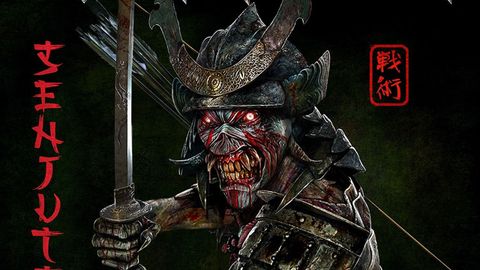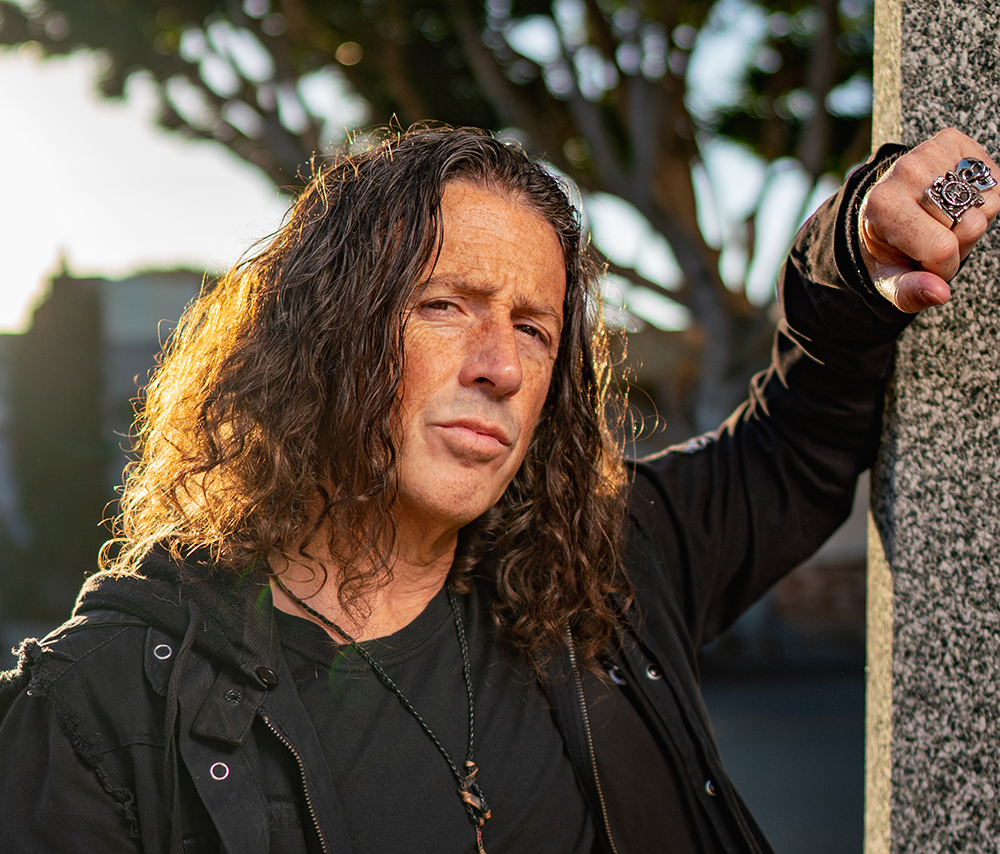Touring the globe is a physically abusive, mind-numbing grind. Most bands build much-needed breaks into their itineraries so they can decompress at home or recharge in the balmy vibes of a tropical holiday. Then there’s Iron Maiden, who capitalised on a break in 2019’s Legacy Of The Beast tour, not only to not chill out, but to record an entire goddamn album – their utterly majestic 17th studio full-length, Senjutsu.
2021 finds Maiden as doggedly ambitious as they were when they stormed onto the scene in the mid-70s. Senjutsu is an electrifying, cinematic masterpiece, its imagery built around Japan’s pre-modern Samurai era and clocking in at 82 minutes - their second double album. The title track opens Senjutsu with sharp, scything riffs that build into a grandiose, minor-key epic as Bruce Dickinson effortlessly crushes one soaring high note after another.
At a time when singles rule the land, Maiden remain firmly entrenched in the same album-oriented aesthetic that dominated the landscape of their early years. As such, Senjutsu is best experienced as a whole. And while Maiden continuously seek to evolve their sound, there are certain non-negotiable elements. Steve Harris’s metronomic, two-fingered gallop remains tautly synchronised with drummer Nicko McBrain’s swinging, single-bass tempos, alongside the breathtaking harmonic interplay between guitarists Adrian Smith, Dave Murray and Janick Gers. From front-to-back, Senjutsu serves up generous helpings of each.
Adrian’s enduring appreciation of Stevie Ray Vaughn comes to mind when hearing the punchy swagger of single The Writing On The Wall, with its blistering opening riff and soulful, sky-dusting solos. Stratego roars out of the gate with a blustery gallop, harmonised chorus and exotic melodies. Elsewhere, Days Of Future Past – the shortest track at just over four minutes – uncorks an unrelenting siege of metallic riffs and the kind of wild, fist-pumping tempos that turn South American football stadiums into giant circle-pits. Lost In A Lost World opens with a dusty acoustic thrum and Bruce’s raw, plaintive vocals. In lesser hands this approach could descend into mawkish sentimentality, but Bruce sings with the deeply affecting introspection of a man pinned between his ragged past and a bleak future.
On any other album, The Time Machine might stand out for its hyper-dramatic chorus and chugging, syncopated breakdown, but it lacks the memorable hooks and identity of other tracks. Senjutsu closes with three Harris-penned tracks totalling more than 33 minutes.
Over the top? Absolutely. And yet, as only Maiden do, they pull it off by giving each track a compelling story and packing each with so many hooks, tempo changes and different parts that it never feels excessive. Death Of The Celts is the standout – a tragic, soul-stirring saga with a fluttery, Clansman-esque acoustic intro and a middle section that features a ripping guitar duel redolent of Thin Lizzy’s Roisin Dubh. The Parchment showcases a creeping, Middle Eastern-tinged melody and a pomp-laden symphonic backdrop that feels like we’re driving straight into the Powerslave pyramid. Closer Hell On Earth begins with a soft, luminous intro, but by now we know that by the end of the track we’ll be on our feet, pounding our chest and proclaiming the glory of Maiden – which is precisely what happens.
Senjutsu, while emerging as Iron Maiden’s most refined and compositionally mature outing yet, lacks nothing in terms of sonic force. If it’s metal haymakers ye seek, look no further. Perhaps it’s the guys’ advancing age or the strange times in which we all find ourselves, but Senjutsu is also the band’s most emotionally compelling work, not just of the post-reunion era, but of all time. One listen isn’t enough; with successive spins, Senjutsu continues to reveal its astonishing depth and a wealth of melodic treasures that will see it easily claim its place alongside the finest works of their canon. An unqualified masterpiece.


